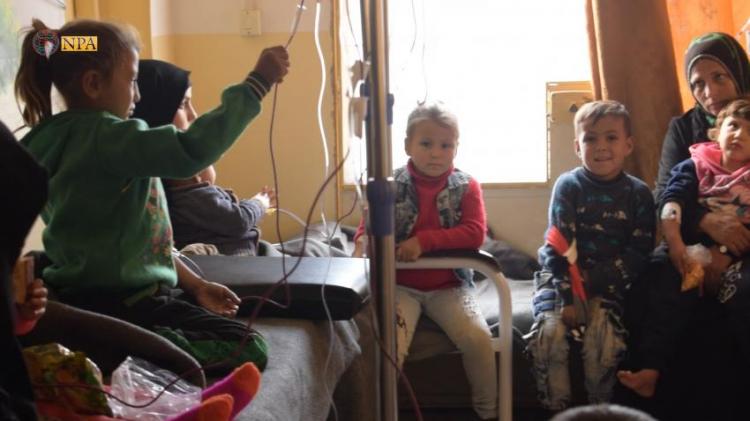Increase of thalassemia cases in Manbij, amid lack of medications and stop of treatment
Manbij – North-Press Agency
Saddam al-Hassan
As medical and relief organizations left the region following the Turkish military invasion in north-eastern Syria, thalassemia patients in Manbij suffer a severe shortage of medicines to treat the disease. The problem has been exacerbated for thalassemia patients in Manbij, since they were receiving drugs from Tal Abyad (Gre-Spi) provided by Médecins Sans Frontières International (MSF), but I delivery of medicines stopped as a result of the Turkish and its backed armed opposition groups’ control over the the town of Tal-Abyad.
Hamam Ali from Manbij countryside, a father of three children who have thalassemia, spoke to North-Press about the difficulty of securing the necessary medicines to treat his children. He visits thalassemia section in al-Furat Hospital periodically for blood transfusion, but the medicines given with blood transfusions are not available such as iron pills and desferal injection. Ali said that in the past, he used to travel to Tal-Abyad to secure medicine from the MSF, but the situation has now changed, as there is no medicine.
Furthermore, Muhammad al-Hamoud, from al-Arima, west of Manbij, whose condition is the same as many patients who make periodic visits to the Thalassemia Section for treatment, he also has difficulties in securing the medicine. Speaking to North-Press, al-Hamoud called for providing the missing medicines to treat him and many other patients who suffer from the disease.
In this regard, Fatima al-Khalaf, an administrative director in the Thalassemia Section, pointed out that the number of patients frequenting the section for treatment is more than 350 patients, in addition to cases of hemophilia, which is rare and difficult to treat.
In turn, al-Khalaf called for providing medical materials and medicines, expanding the section, increasing the number of beds to receive patients, and providing the necessary equipment for the early detection of the disease, such as "electrophoresis test", which is dedicated to identify the thalassemia.
Thalassemia is a hereditary disease that affects children, resulting in a disturbance in red blood cells that leads to enlarged spleen and bone deformity. The patient needs regular blood transfusions and medications, in order to continue his normal life.

